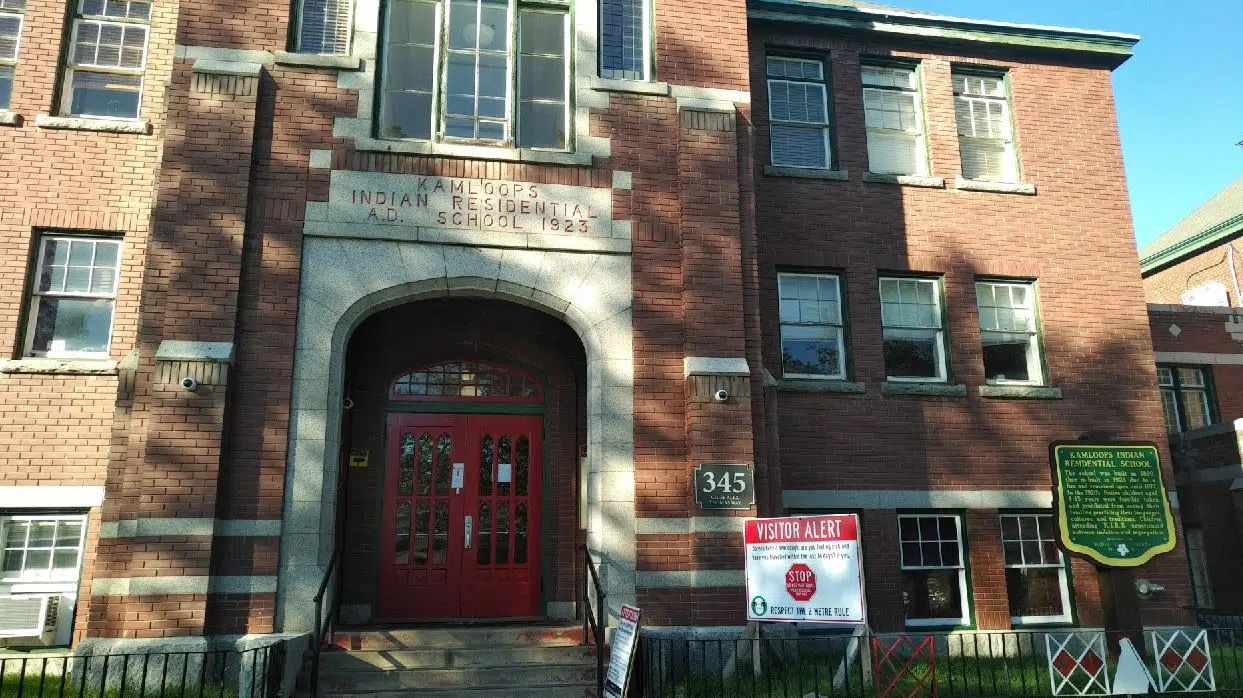
UBC says it is reviewing the honorary degree it gave to a former principal of the Kamloops Indian Residential School 35 years ago.
Fergus O’Grady was given the degree in 1986. According to UBC archives, his recognition was for his contributions to Indigenous education; O’Grady was the principle of the residential school in Kamloops and also “served on staff” at the residential school in Mission. O’Grady passed away in 1998 at 89 years old.
The review of the degree comes after unmarked graves of 215 children were found at the Kamloops Indian Residential School grounds, according to Tk‘emlúps te Secwepemc, through the use of ground-penetrating radar.
“The university is aware of the community concerns relating to the honorary degree conferred in 1986 to Bishop John O’Grady. The issues raised are deeply upsetting and we take them seriously,” UBC wrote on Twitter on Saturday.
“UBC’s Senate will be reviewing this matter immediately per our processes and policies relating to honorary degree recipients.”
The school did not have an update on the review on Monday morning, when asked by NL News. But media relations staff sent a lengthy statement from UBC President and Vice-Chancellor Santa Ono.
Ono says Indian Residential Schools “sought to break their ties to their families, communities, and culture… Children suffered emotional or mental abuse, and many suffered physical and sexual abuse. The devastating legacy of the Indian residential school system has affected nearly every Indigenous family and the effects on communities are still here today,” he says.
“Universities, including UBC, bear part of the responsibility for this history, not only for having trained many of the policy makers and administrators who operated the residential school system, and doing so little to address the exclusion from higher education that the schools so effectively created, but also for tacitly accepting the silence surrounding it.”
There are now widespread calls to investigate the grounds of other Indian Residential Schools in Canada where many more bodies are suspected to be in unmarked graves. Tk‘emlúps chief Rosanne Casimir says the scale of the loss is “unthinkable.”
The Kamloops Indian Residential School opened on May of 1890, and hit peak enrolment of 500 students in the early 1950s. The federal government took over administration of the school from the Catholic Church in 1969, using the building to house students who attended other schools in Kamloops. It was closed in July of 1978.
Residential schools were open in Canada for more than 120 years and the final school was not closed until 1996.
Thousands of Indigenous children were forcibly taken from their home bands to residential schools, in Kamloops and other places, where many were abused, neglected and malnourished while living in crowded spaces that lacked basic healthcare. The schools were operated by the church, and an estimated 6,000 children died at residential schools according to the Truth and Reconciliation Commission. More than half of those children remain unidentified.
Many residential school survivors and other band members from across the southern Interior gathered in Kamloops on Friday afternoon to commemorate the 215 children whose unmarked graves were found last week.
















